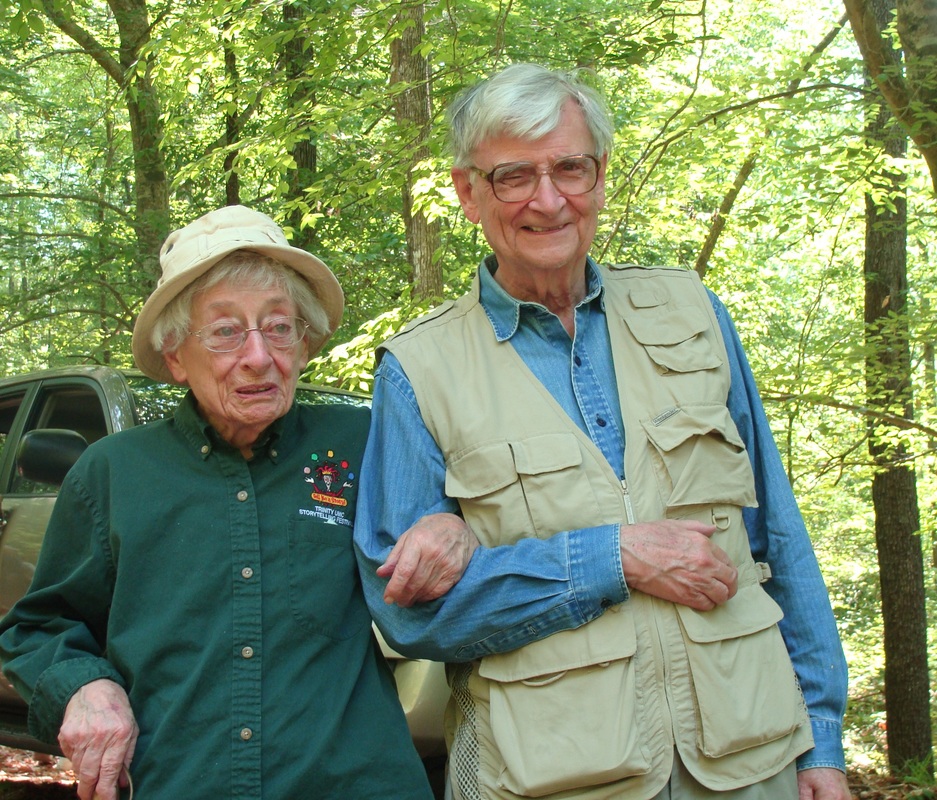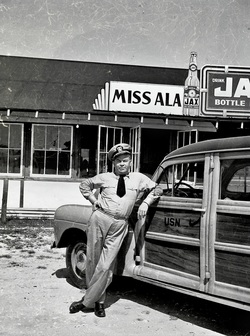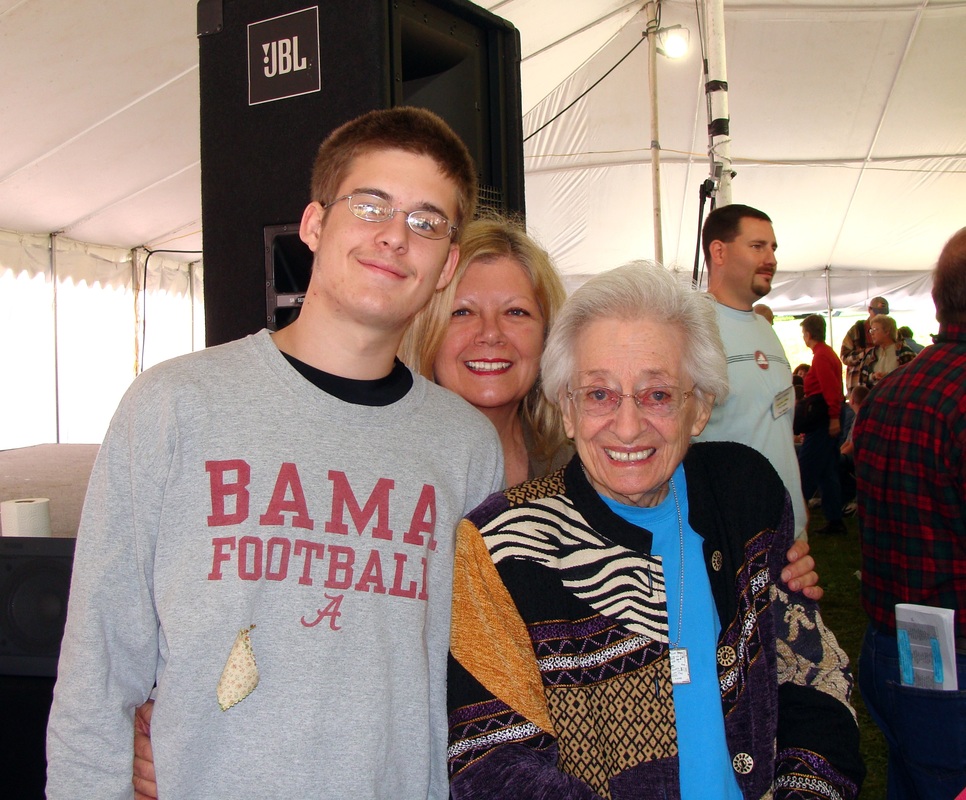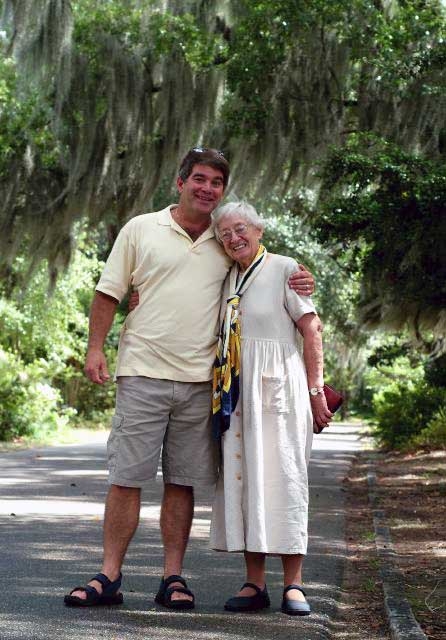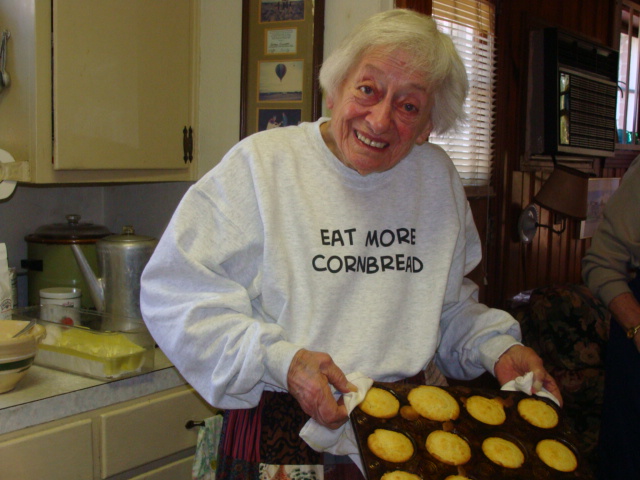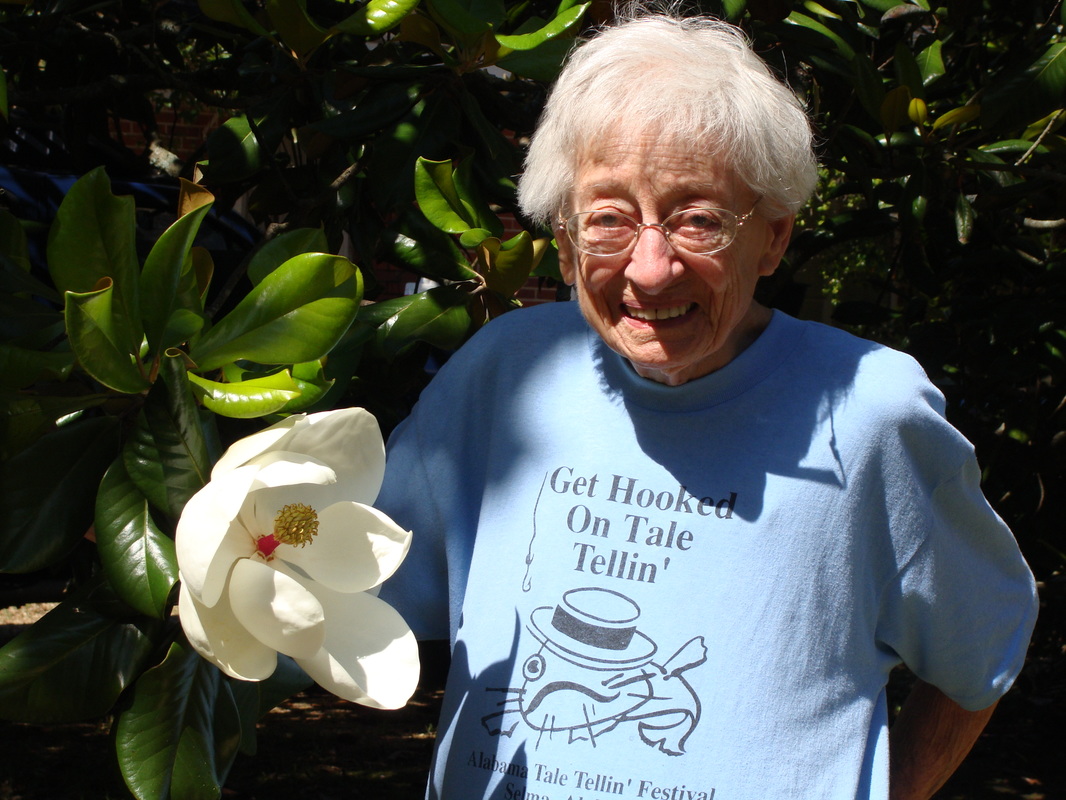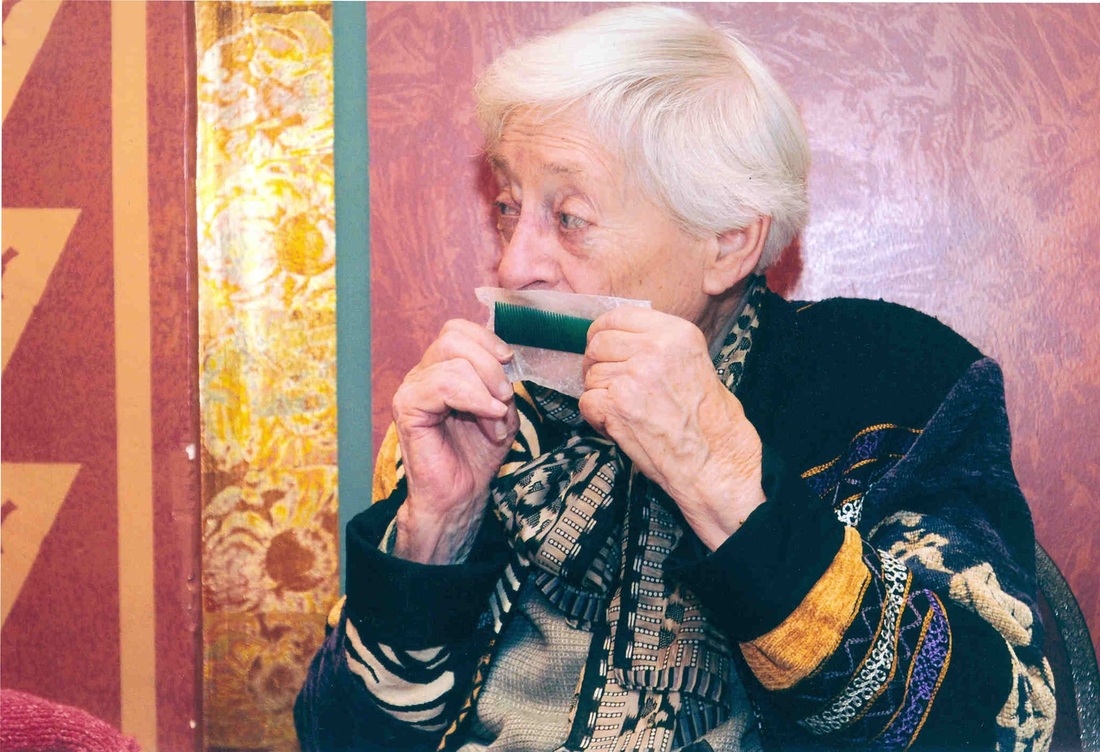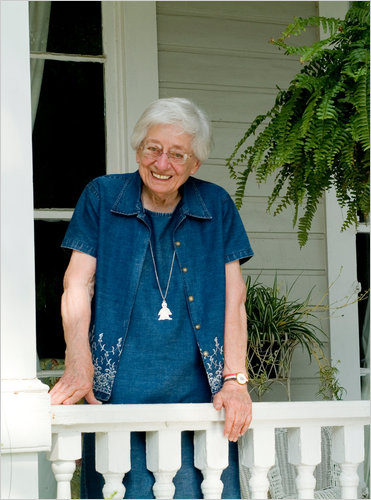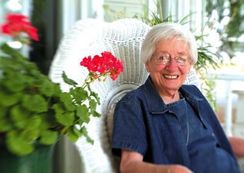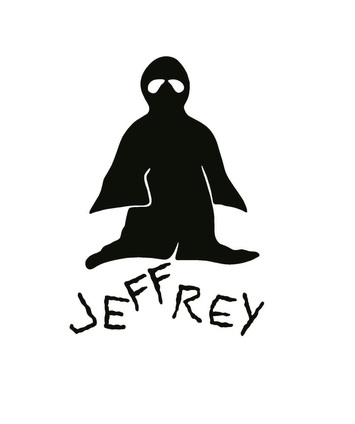|
(Unless otherwise noted, the Kathryn Tucker Windham blog is written by her children, Ben Windham and Dilcy Windham Hilley.) Every child was a fan of cowboy shows in the 1950s. From Hopalong Cassidy to Gene Autry, it was a horse-riding, gun-slinging good time to be a kid. Among the most popular TV stars of that era was the singing cowboy, Roy Rogers. Known as “The King of the Cowboys,” he appeared in more than 100 films and dozens of radio and television episodes of The Roy Rogers Show. Alongside him on the show were his third wife Dale Evans, his palomino Trigger, and his faithful German shepherd Bullet. Though both Roy Rogers and Dale Evans had an impressive number of previous marriages, they seemed to find enduring love in their relationship. Not everything in their Western royalty lives was perfection. Their only child together was born with Down syndrome and died just after her second birthday. Shortly after in 1953, Dale Evans Rogers wrote a book about little Robin Elizabeth called Angel Unaware. The title came from Hebrews 13:2 which says, “Be not forgetful to entertain strangers: for thereby some have entertained angels unawares.” Angel Unaware soared to the top of the bestseller charts and was widely hailed for its openness about children with disabilities. It seemed that every home in America owned a copy. We did. I can still remember the cover with Roy and Dale looking toward heaven at a vision of their child. Steeped in the Christian values of the 1950s, the book was discussed endlessly among family and friends around the country. My brother, Ben, must have heard many of those conversations among neighbors and friends. He was four about that time and absorbed every word he heard. One day as Mother was going about her chores, Ben came to her with a challenging question. “Mama,” he said, “what kind of underwear do angels have?” Mother paused, puzzled by the origin of that question. “Why do you ask, Ben?” “Well, everybody’s talking about that book about angel’s underwear, and I just wanted to know about it. That’s all.”
2 Comments
(Unless otherwise noted, the Kathryn Tucker Windham blog is written by her children, Ben Windham and Dilcy Windham Hilley.) Sloss Furnaces National Historic Landmark in Birmingham is a fascinating collection of rusting stacks and old mining equipment. It tells the story of the city when it was a gritty, growing steel town, when it was the “Pittsburgh of the South.” Another story associated with Sloss is the tale of Theophilus Calvin Jowers who died a grisly death in the molten liquid of a Birmingham furnace. Folklore has it that Theophilus’s ghost took up residence at Sloss when it became the last operational furnace, and he’s been there ever since. Mother wrote this story in a little book called The Ghost in the Sloss Furnaces. Though Sloss now hosts a Halloween horror town that’s popular with the chainsaw crowd, they used to have a pumpkin carving competition and storytelling. I believe it was sponsored by Sloss, the Birmingham Historical Society and the now-defunct Birmingham Post-Herald. It was great fun, and families turned out in droves to the Sloss amphitheater. Mother was often the featured storyteller at this event. In her telling, she always included the story of Theophilus and his tragic death. Children were mesmerized. Adults were intrigued. And always…always…during the telling, a long, loud train would come rumbling right by the amphitheater, interrupting the story. As the train began blowing its whistle upon approach, Mother never missed a beat in her storytelling. To everyone’s delight, she would work a train right into that story. “And so that morning, Theophilus kissed his wife and headed out to work at the Alice Furnace…,” Mother would begin Whoo! Whoo! Whoo! Rumble, rumble, rumble. Clickity-clack, clickity-clack, clickity-clack. The train was enroute in the midst of the story. “Theophilus was almost late for work that day because he had to wait on a passing train,” Mother would continue. Good storytellers can’t be derailed. (Unless otherwise noted, the Kathryn Tucker Windham blog is written by her children, Ben Windham and Dilcy Windham Hilley.)
Mother believed in doing for others. She believed we were put on this earth to bring joy to other people, and she tried to live her beliefs. Mother and her good friend Georgene Frasier decided that they would have “do-good Sundays.” On Saturday nights, they would bake up some date balls or some cheese wads---look for these recipes in Mother’s cookbooks---and bag them up for the next day. After church and lunch on Sunday, Mother and Georgine would set out on their do-good missions. All went well until it was noted that three elderly recipients of their visits died within a week after Mother and Georgene had come to call. Then their do-good Sundays lost their luster on both the giving and the receiving ends. Mother said she believed some shut-in friends even began to lock their doors on Sunday afternoons. Though it was just a coincidence, it put an abrupt end to do-good Sundays. It did not, however, stop Mother from wanting to bring a small bit of joy into otherwise dreary lives. We had a longtime friend who lived around the corner and a block away. She was a brilliant, funny, fascinating woman who, in her final years, grew demented. Mother still felt her friend needed some attention, so one afternoon she fried up a chicken and cooked some black-eyed peas and cornbread to take to our friend. Being always courteous, Mother called first to make sure it was a convenient time to deliver supper. This, of course, was long before cell phones. If you wanted to talk on the phone, you had to do it on your landline. Well, Mother called and her friend answered. “Eva Merrill,” Mother said, “I’d like to bring you some fried chicken for your supper. Is this a convenient time?” “Oh, Kathryn,” Eva Merrill responded, “I’d love to see you, but I’m not at home!” Mother thought that was a fine answer, something she might use herself somewhere down the line. Unless otherwise noted, the Kathryn Tucker Windham blog is written by her children, Ben Windham and Dilcy Windham Hilley.)
We didn’t yell in our house when we were growing up. As a matter of fact, I can’t remember a voice ever being raised except in a joyful moment or in the telling of a story that required it. We children did yell a lot in the deep lush woods behind our house. The woods provided a supreme playground for a neighborhood full of children. There, we could crawl through ditches, climb trees and play war. War was a favorite pastime of the boys in the neighborhood, and brother Ben often recruited me to serve as the decoy. The decoy’s responsibility was to run past enemy lines while being pelted with hard balls of sticky red clay. I have no idea why I agreed time and again to be the decoy. It was just big brother adoration, I suppose. My mother devoted much of her time and energy to the church, and she did her best to follow the teachings of the Bible. That wasn’t always the easiest route while raising three rambunctious young children, but she rarely showed what must have been a recurring state of aggravation. I expect the pages of her Bible were thin and worn around Proverbs 15:1 which says, “A soft answer turneth away wrath: but grievous words stir up anger.” I do remember a few trying times when most parents would have howled in anger---but not my mother. When she reached her boiling point, she would declare calmly, “I’m going to run screaming to the woods.” As a child, I was horrified by that statement. I envisioned my sweet mother, hair in flames of anger, racing through the woods, her curdling Tarzan-like scream echoing through the oaks. My brother and sister knew that statement meant it was time to quietly disappear. I, on the other hand, would beg Mother not to carry out this horrid vow. Soon, we all would settle down and peace and calm would return. But to this day when I’m frustrated and tired and angry, I can hear my mother saying, “I’m going to run screaming to the woods.” And I know what she meant…. (Unless otherwise noted, the Kathryn Tucker Windham blog is written by her children, Ben Windham and Dilcy Windham Hilley.)
My brother and I hit our teenage years and early twenties in the heart of the hippie movement. It was an energetic time to be young. We had wars to protest, nature to worship, artistic music to experience, establishment to rebel against, and lots and lots of long beautiful hair. In Selma, as in most of Alabama at that time, the movement was much more about hair than it was about drugs and being antiestablishment, and, man, did those freak flags fly. Our former-military high school principal would have none of it and regularly suspended the boys whose hair tickled their shirt collars. That often meant those same boys were ejected from their homes for refusing to conform. Oh, it felt good to rebel. It didn’t, however, feel so good to be hungry. For some reason that can be explained only as having a Haight Ashbury inner child, my mother regularly welcomed our long-locked friends into our home. She fed them when they were hungry and sometimes even negotiated a truce with their parents. The accord generally involved a haircut, but not before Mother would share with the boys an ode to revolt she remembered from her childhood. It went: “Johnny Boy, who cut your hair? You say your mother did. Did she cut it with a meat axe, You funny looking kid? Did she freeze it, son, And break it off? Whatever she did was wrong. So take my advice If you wanna look nice, And, Johnny, let your hair grow long!” (Unless otherwise noted, the Kathryn Tucker Windham blog is written by her children, Ben Windham and Dilcy Windham Hilley.)
My great aunt Bet liked her wine. Before she was bedridden by a broken hip---in those days it was not fixable---Aunt Bet liked to make her own muscadine wine. She generally made the wine on Sunday afternoons in the early fall when the grapes ripen to perfection. In her first book, Treasured Alabama Recipes, Mother tells the story of one of Aunt Bet’s Sunday afternoon escapades with wine making. She was in the kitchen that Sunday after church preparing a muscadine harvest for fermentation when there came a knock at the front door. Aunt Bet peeped down the long hall and, to her dismay, saw the preacher and a couple of deacons standing at the door. Her hands were stained in the dark, tell-tale berry juice, so, without missing a beat, Aunt Bet hurried to the hall table and slipped on the white gloves she’d worn to church. If her visitors thought it unusual that Aunt Bet answered the door in white gloves and an apron, they were too polite to say so. Since that time, my family has referred to that recipe as White Gloves Wine. After Aunt Bet was confined to bed, she still liked to precede her supper with a small glass of red wine. It was inconvenient, however, that Clarke County was a dry county at the time. What was convenient was that I traveled regularly by bus to spend weekends with Aunt Bet and her sister, my grandmother, Heddie. Now, mind you, this was an era when a mother could, in good conscience, put her six-year-old daughter on a Greyhound bus and know she would arrive safely at her destination. That same mother could also pack my suitcase, carefully wrapping a bottle or two of red wine in my days-of-the-week underwear. When I arrived in Thomasville from Selma and was otherwise distracted, my grandmother would take my bag to the back bedroom and hastily unload the bootlegged liquor. This young rumrunner had not a clue she was delivering the goods. It was a satisfactory system and likely the reason Aunt Bet was always so delighted to see me. (Unless otherwise noted, the Kathryn Tucker Windham blog is written by her children, Ben Windham and Dilcy Windham Hilley.)
Though it’s not at all the season to talk about this, I’ve been thinking lately about my mother and her New Year’s Day party. Every January 1st for at least 25 years, Mother opened her modest Selma home to anyone who wanted to come eat black-eyed peas and cornbread. (It is, of course, widely recognized that you must eat black-eyed peas on New Year’s Day in order to have good luck throughout the coming year.) People came in droves every year, lots of local friends and friends from all around the Southeast. Strangers came too, some, I believe, just to see what sort of person would invite the world to “Pea Eatin’,” as it came to be called. Mother cooked peas and baked cornbread from dawn until around 1:00 in the afternoon when she figured that was enough. Her head was forever in the oven checking the doneness of the cornbread. If you wanted to visit with her, you had to do it in the kitchen. She was particular about how she served her guests. Paper plates and plastic wear were out of the question. Mother had a rather large stash of mismatched, small china plates for the occasion, and we’d spend New Year’s Eve polishing silverware. Two of her closest friends were the kitchen helpers, hand washing the utensils to keep them in rotation, but it was too hard to keep up with plates too. Mother’s solution was for me to be the dirty dishes runner. My job was to gather plates up as the guests finished their good luck peas, take them to my brother’s room, and put them under the bed! It was a clever and efficient means of keeping the kitchen free of clutter. And so like my mother. (Unless otherwise noted, the Kathryn Tucker Windham blog is written by her children, Ben Windham and Dilcy Windham Hilley.)
I’ve just returned from a trip to Greece, the second time I’ve visited that amazing country. My first visit was in 1963 when Mother decided it was a good time to take her three children to Europe. To finance the trip, she had saved my daddy’s life insurance money for seven years after he died. She said Daddy had wanted to take us all on a big family vacation once we got old enough to appreciate it, but he didn’t live that long. The Windham family were the only guests on a freighter leaving the Mobile port to deliver blankets to the Greek army. We had small double cabins but spent very little time in them. The sea was our playground. It was a magnificent summer spent in Greece, Italy and Turkey. I look back and marvel that my mother had the courage in that day and age not only to travel to Europe but also to take along three children. As I looked at the Acropolis now being carefully restructured, I remembered clambering all over it as a 10-year-old. It’s off limits now. Tourists like me did too much damage to the structure. But Athens now has the impressive Acropolis Museum, preserving the ancient statuary and artifacts from weather and pollution. It was a very different visit this time. I searched for the charming little Athens hotel we stayed in in 1963 but found no sign of it. I suppose it’s long gone. But my memories of that magical summer are still intact. I think Mother would like that. (Unless otherwise noted, the Kathryn Tucker Windham blog is written by her children, Ben Windham and Dilcy Windham Hilley.)
Life is full of troublesome things. Mother had more than her share of troubles in the course of her long life, but she had a forge-ahead spirit that didn’t allow her to dwell on the dark parts. When I was troubled by life’s little snags, I often called Mother for sage advice. Generally, she had wise words to head me in the right direction, but sometimes she just didn’t have any guidance to give. In those rare circumstances, she would simply pause for a moment and say, “Well, you know, things have a way of working themselves out.” And it’s true. Rough patches almost always resolve themselves I asked her one time where her optimism and resilience came from. She told me it likely came from her mother, Helen Tucker, who wore her joy on her sleeve. We called my grandmother “Heddie,” likely a child’s first attempts at pronouncing Helen. When Mother was a little girl, Heddie woke her every morning with this verse: “This day will bring some lovely thing. I say it o’er with each new dawn. Some bright adventurous thing To hold against my heart And treasure after it is gone. And so I rise to greet the day With wings upon my feet.” And Mother lived her life by that directive. (Unless otherwise noted, the Kathryn Tucker Windham blog is written by her children, Ben Windham and Dilcy Windham Hilley.) Mother’s Day is nearly upon us. It’s a sweet occasion and important to many mamas who look forward to that special time. While my mother was in this world, we never celebrated Mother’s Day. She thought it was an insult to allot a measly 24 hours to recognize the person who does a yeoman’s job year-round. Just an insult! But because she was widely loved, people often sent her Mother’s Day greetings and little gifts. Mother, of course, appreciated all the gestures of affection but often had little use for the gifts she received. The presents usually wound up in the top of the hall closet along with an assortment of gift bags and bows that were “perfectly good for reusing.” One Mother’s Day, I asked my mother if she had any guilt about storing away the things that the well-intended sent her. Instead of answering me, she went to her room and returned with her Bible. She thumbed through it and pulled from the worn pages a yellowed clipping. It was a poem by Jane Merchant called “The Gift.” It read: Whatever gift I give to you is yours. Give it away, or keep it, as you will. The special books, the china miniatures, The little birds carved with beguiling skill I shall not peer about your house to see If they are dusted well and duly shown To visitors, as treasured things may be. I made a gift of them, and not a loan. I know that gifts sincerely loved Both for themselves and for the giver’s sake Have in life’s many changes often proved A burden; be relieved of the mistake Of thinking you must keep a gift I give (Except my love) as long as you shall live. |
Archives
November 2022
We welcome YOUR comments on our blog posts. You will see a "comments" link at the top and bottom of each page. Feel free to join in!
Want to get alerts when new posts are added to this Blog? Visit and "Like" our Facebook page and you will see the new posts there when they are added! Click here to visit the new Kathryn Tucker Windham Facebook Page. |
|
"Some people are important to intellectuals, journalists, or politicians, but Kathryn Tucker Windham is probably the only person I know in Alabama who is important to everybody."
–Wayne Flynt, Professor Emeritus in the Department of History at Auburn University. |
CONTACT US
Dilcy Windham Hilley Email: [email protected] © 2023 - Dilcy Windham Hilley. All rights to images belong to the artists who created them. Site by Mike McCracken [email protected] |
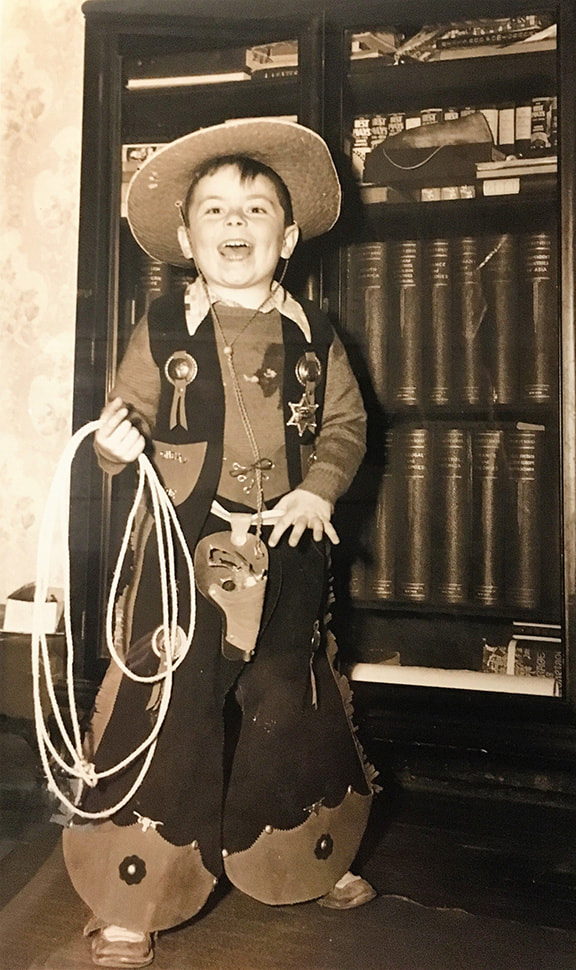
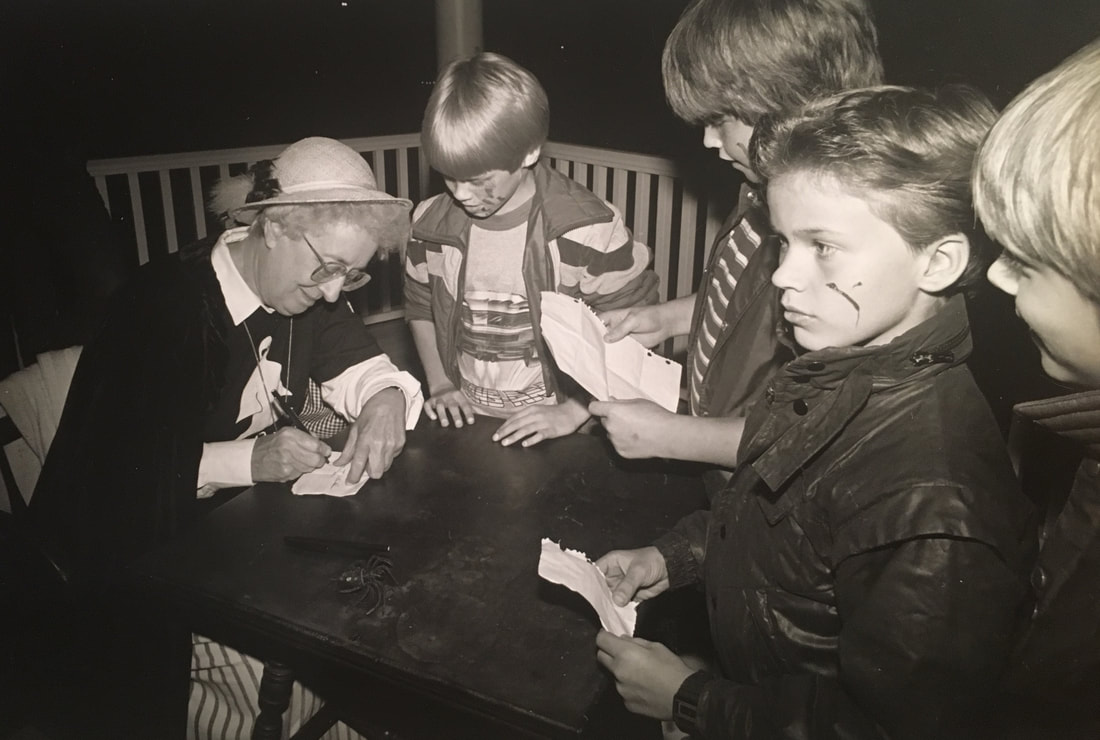
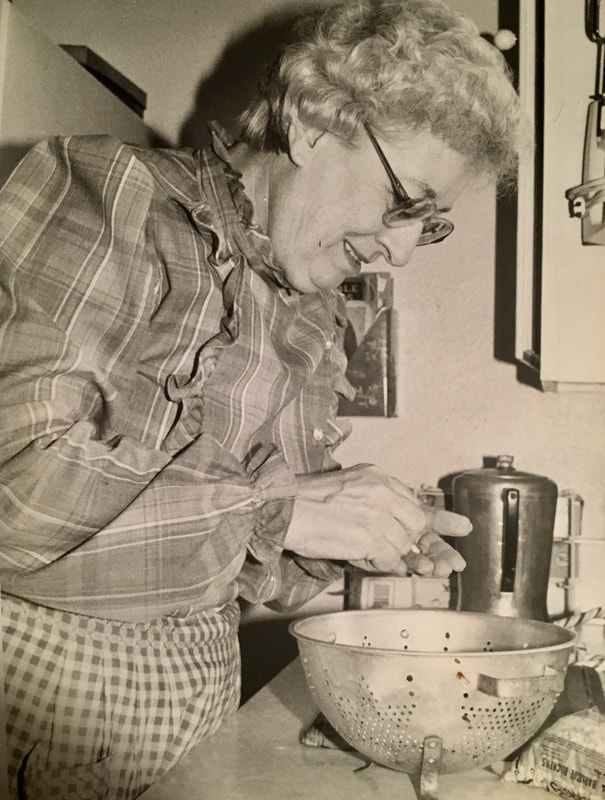
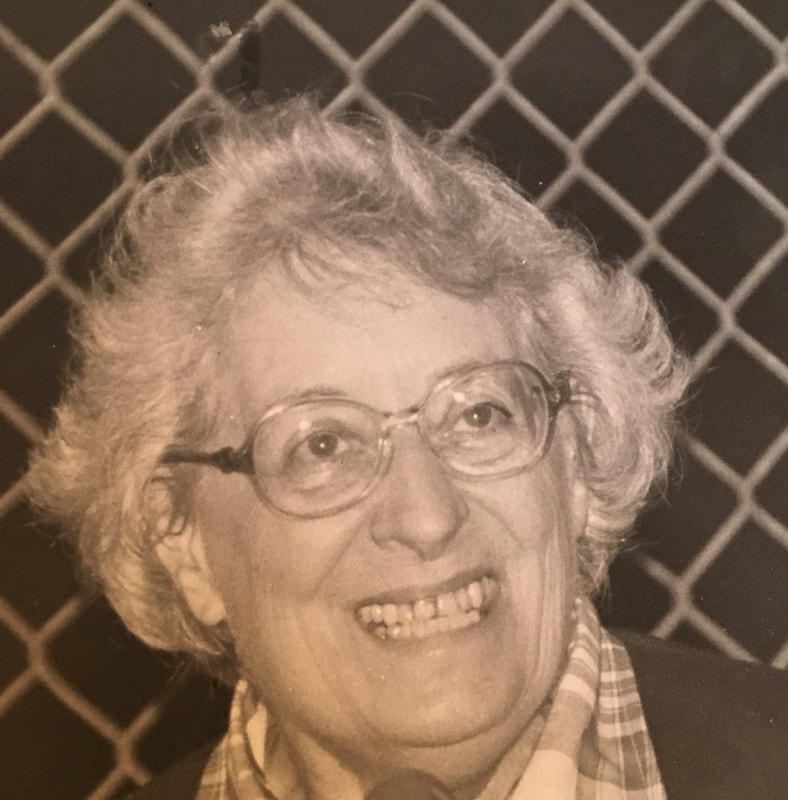
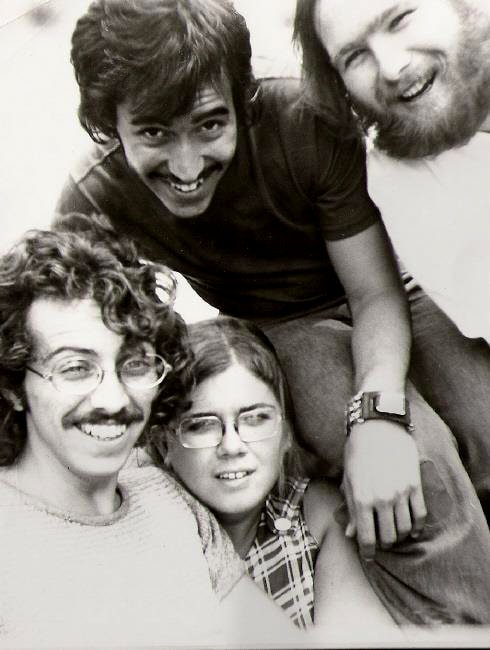
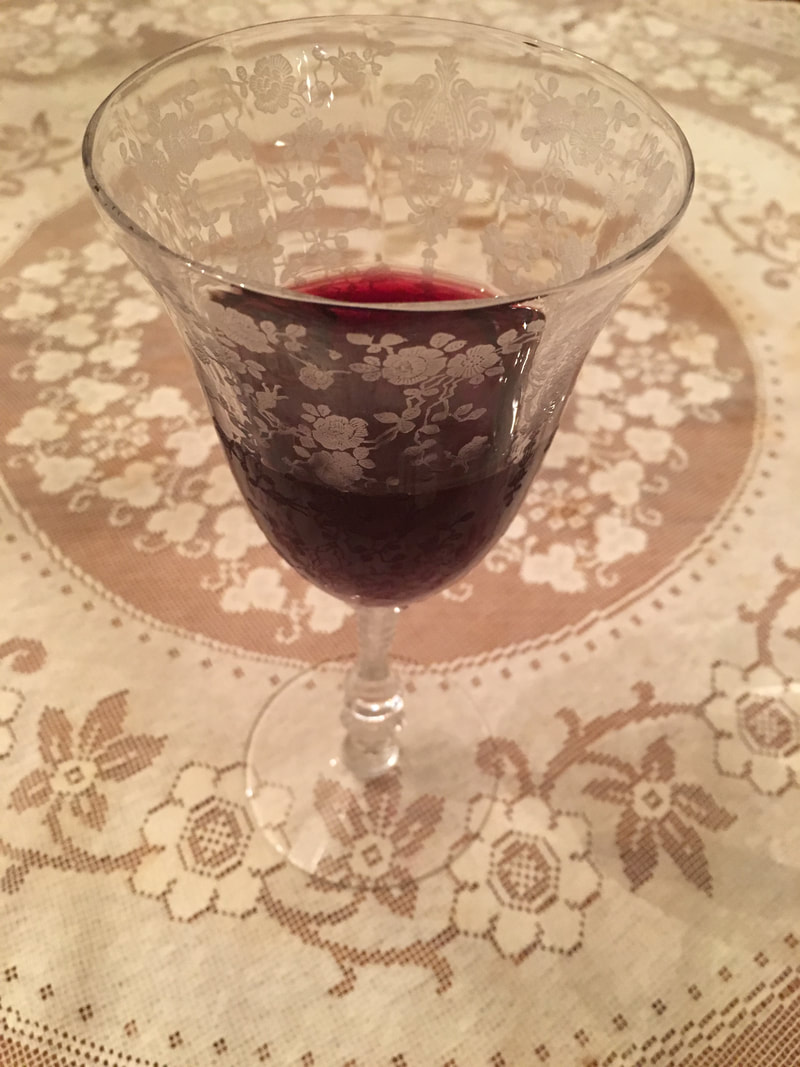
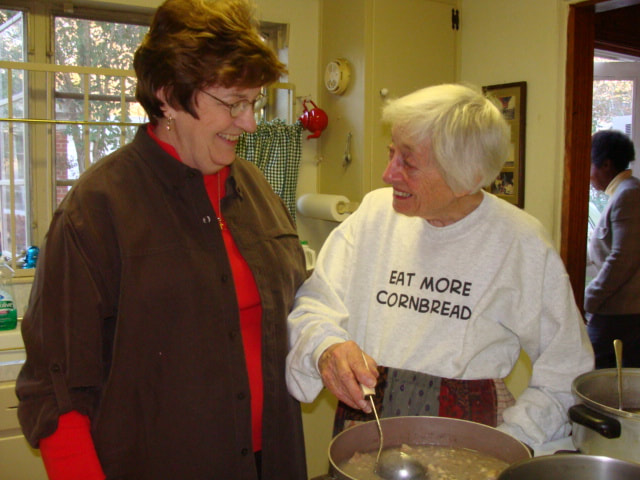
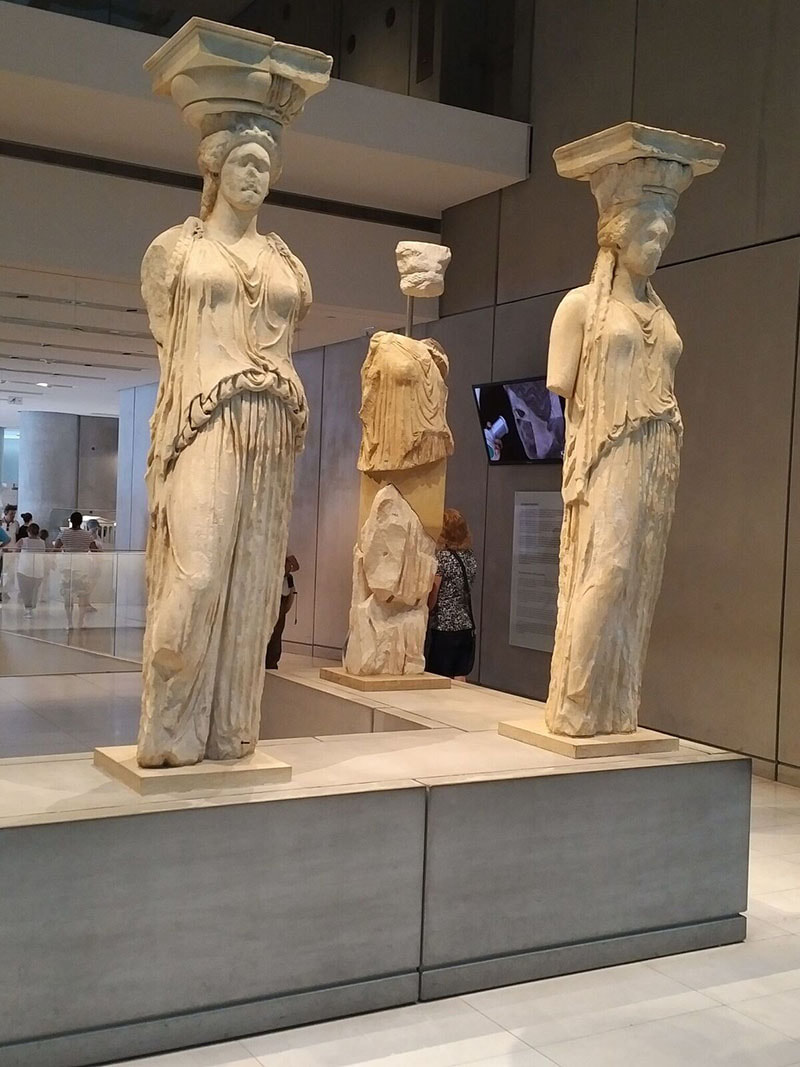

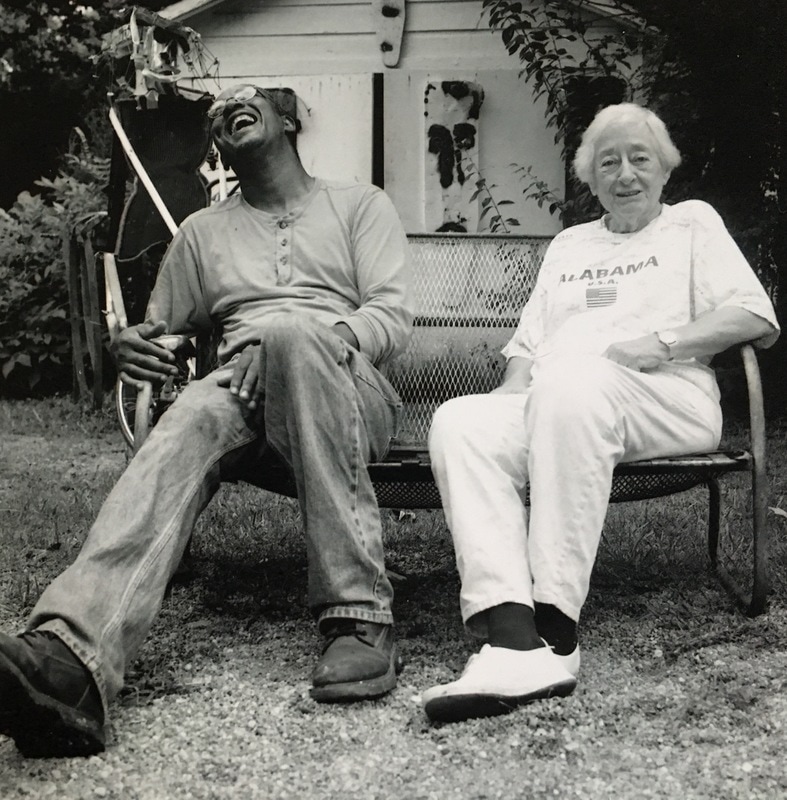
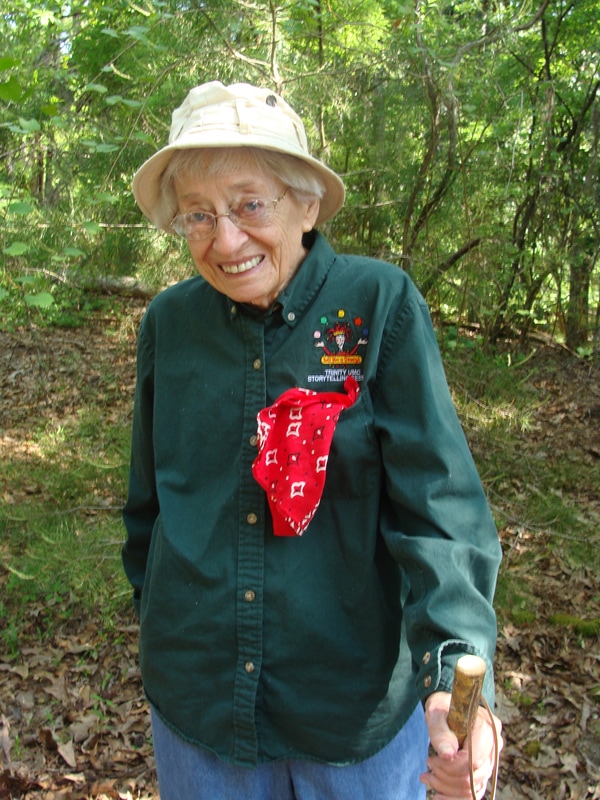
 RSS Feed
RSS Feed
